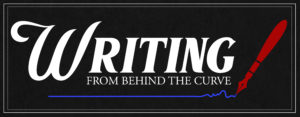Episode Title: What if my writing and grammar skills are suspect?
Throughout this blog, the overriding goal has been to fulfill your longtime desire to write, first for yourself, possibly for others in your close-knit circle, and, lastly, for the world at large. Thus, unlike a writer wishing to be published, who must present not only a good story but also a competent technical writing, you have an option available to you. And that option is to concentrate on telling your story, and then make the decision as to whether you wish to polish it beyond where your technical skills are today.
 Image by Devanath from Pixabay
Image by Devanath from Pixabay
Should you eventually decide that you would like to take your writing to the next level, such as to publish an ebook or, perhaps, to present your story to a literary agent or traditional publishing company, an edit of your work will be in order. Be assured that an avid reader or literary professional will immediately recognize an unedited work and be put off by it. You may choose to perform the edit yourself, but you must be realistic about this. If you were not trained as an editor, it will take many hours of study to gain the knowledge to perform a competent review. You may, in fact, spend as much time learning to edit as you do in the writing itself. Even then, because it is your own work that you are editing, seeing fundamental plot problems and character development flaws may remain unseen by the same eyes that created these story features in the first place.
 Image by Mert Talay
Image by Mert Talay
Assuming that your decision is to engage a professional editor, you will need to decide the type of edit you wish to have undertaken and, of course, what level of edit your budget will allow. There is the content edit, which focuses on the larger issues of plot, character development, scene selection, and logical story flow; the line edit, which as it name implies, is a line-by-line detailed review of everything from sentence and paragraph construction to inconsistencies in point of view, all in an effort to hone the work to a professional technical standard; and, the copy edit, which is the most intense and detailed in every respect, right down to specific word usage and fact checking, in addition to everything included in the other edit types. Depending on the length of your story and the degree of help desired, the cost may run from hundreds to thousands of dollars for these valuable services. But, again, these costs are only necessary if you decide to go beyond what is likely your initial intention, that is, to write a story for yourself and perhaps those close to you.
 Image by Janet Gauch
Image by Janet Gauch
Should you somehow feel singled out in the need for an edit of your work, keep this in mind: Few competent story tellers are also competent technical writers. It is a simple matter of two quite different disciplines at work, much as a good baseball pitcher wouldn’t also be expected to be a good catcher. An example of this point is covered in great detail in the book, James A. Michener’s Writer’s Handbook, by James A. Michener. Within the handbook are many images of Michener’s manuscript pages, on which the editor’s notes are displayed. Here, we have the work of one of the epic writers of the 20th century being routinely corrected and corrected again by a publishing house editorial staff. And when I say “corrected and corrected again,” I mean many corrections. On one of the manuscript pages, the editor actually suggests that Mr. Michener move an extensive subplot to a whole new novel. Now, that’s editing! The only difference between Mr. Michener and the rest of us, then, is that he didn’t have to pay to have his work edited. I can’t imagine why!
All the best,
Dick Franklin
richardsfranklin100@gmail.com
Dick is author of novels Joshua Rye, Serpent at the Well, and MOLTO GRANDE. Go to: amazon.com/author/dickfranklin



Leave a Reply